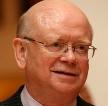South Africans are pleased at the rise in the pass level of the NSC examination. Also, everyone is proud of those young people who passed. In the ecstasy of the announcements, few mention the enormous drop-out before Matric is reached: more than 50%.
The pass rate at schools administered by the Department of Basic Education was 82.9%, a good increase over previous years’ figures. Private schools, writing the IEB version, scored a 98.47% pass rate. The difference is 15.5%.
The gap in the quality of the two is illustrated when one looks at the percentages of passing candidates at the three different levels of the NSC examination. Only 40.9% of the DBE candidates passed at bachelor’s level, giving access to universities; of their total passes, 27.2% received diploma passes and 14.8% received certificate passes. Of IEB candidates not getting bachelor’s level passes, the balance of 8.31% got Diplomas and 1.57% received certificates.
We can be forgiven for thinking that with remarkable exceptions at some outstanding DBE schools, including some Model C schools and a few township schools, if you want your child to go to university, consider making the sacrifices that private schools fees entail.
The standard of the NSC examination at both DBE and IEB schools is exactly the same. Umalusi must, and did certify all curricula, examination papers and standard of marking.
What causes the marked difference between the two? Surely it must lie primarily with the quality of teaching and the ethos of the schools? Many teachers, not all, belonging to the union, SADTU, are not up to scratch. Only 41% of our teachers have adequate proficiency levels (compared with Keny 95% and Zimbabwe 87%). SADTU meetings often take precedence over teaching, and interference by the ANC and SADTU in senior teacher appointments. In some provincial education departments, SADTU has more power than the responsible officials. Does this explain why 74% of Grade 4 learners cannot read for meaning in any language? Or teachers who cannot pass the examinations of the grade-level they teach?
Premier Panyaza Lesufi, of Gauteng, (who inflicted on Johannesburg the Doomsday coalition and two inept mayors in a row), made a call for all children to write the same examination. This was interpreted initially as a call for the abolition of the IEB. This would have been in line with ANC policies: if something works, wreck it. Lesufi subsequently explained that this was not his attention. He said that if the IEB is better, all children should write that examination. He has clearly not thought the matter through. In the first place the Constitution provides for diversity and Freedom of Choice. Secondly, the government must accept its responsibility to educate millions of children. Thirdly, if many DBE schools and teachers are not coping with their curriculum, how they would cope with the higher demands of the IEB?
The promise to our children, black and white, rich and poor, is a good education. We have one of the most unequal school systems in the world. Children in the top 200 schools achieve more distinctions in mathematics than children in the next 6600 schools combined. The gap in test scores between the top 20% of schools and the other 80% is wider than any other country in the world. Yet we spend 13% of the Budget on Basic Education.
Our children deserve better. What are Lesufi and his party doing to fix this?
Douglas Gibson is a former opposition chief whip and former SA ambassador to Thailand. His website is douglasgibsonsouthafrica.com
This article first appeared in The Star newspaper.

